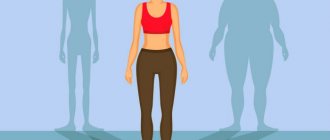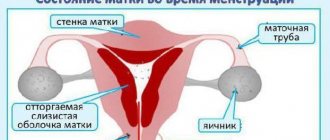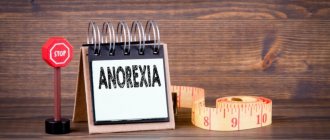In the list of the most common causes of excess weight or obesity, hormonal imbalance is in second place after overeating. It seems that the person is eating right, but is gaining weight. Or he’s on a diet but can’t lose weight. Indeed, hormones and weight are inextricably linked. And sometimes, in order to maintain health and an attractive appearance, it is necessary first of all to put the endocrine system in order.
What are hormones and how do they affect a person’s body composition?
Hormones are biologically active substances that regulate absolutely all processes in the human body in general, its organs and tissues in particular. Produced by endocrine glands, they are carried in the blood and have a long-distance effect. It is through them that self-regulation of the body occurs. Hormones can also influence a person’s character, behavior, feelings and mood.
Read on the topic:
How to calculate body proportions and what shapes are considered ideal
The most important endocrine glands are the pituitary and pineal glands, located in the brain, the thyroid and pancreas, the adrenal glands, and the gonads (testes in men, ovaries in women).
Disturbances in their activity in one direction or another, hypofunction or hyperfunction, lead to the occurrence of endocrine diseases and, accordingly, hormonal imbalance. As a result, a person can gain weight for the following reasons:
- increased appetite;
- slowing down metabolic processes in the body;
- acceleration of the growth of adipose tissue.
In medicine, there is a semi-official concept of “hormonal obesity.” But no specialist, no matter how qualified he is, will make such a diagnosis by eye. To identify endocrine disorders, it is necessary to undergo special tests. Unfortunately, even based on their results, it is difficult to determine the direction of cause and effect: hormonal imbalance can be both the cause of obesity and its unfortunate consequence. In any case, to lose weight, you need to undergo treatment.
What hormones do you need to take to lose weight?
The human endocrine glands produce more than a hundred humoral regulators of various natures: steroids, protein-peptides and amino acid derivatives. Hormones that prevent you from losing weight or, conversely, promote weight loss, can be found in the following list.
Estrogens (estradiol)
These hormones are produced by the female reproductive glands and ovaries; they directly affect the health and appearance of a woman.
In middle age, due to ovarian hypofunction, the level of estrogen, in particular estradiol, decreases, and metabolic processes slow down. In parallel with this, there is a lack of serotonin, so women in premenopausal and menopausal age are prone to depression, and their sleep may be disturbed. All these negative changes in combination often lead to weight gain. Conclusion:
The cause of extra pounds in women may be a decrease in the amount of estradiol.
Although estrogen is called a female hormone, it is also present in men. True, normally their number is insignificant. The real problem comes when their levels start to rise for some reason. A man develops so-called female-type obesity, there is a risk of impotence and a number of other unpleasant changes.
Testosterone
This anabolic hormone is considered male and is produced by the testes in the male body. They are also found in small quantities in women. Testosterone normalizes the ratio of muscle tissue to fat. The lower its level, the higher the risk of obesity in both men and women.
Progesterone
Its level changes during a woman's menstrual cycle. In its second half, closer to the onset of critical days, a surge occurs, due to which fluid accumulates in the female body and metabolic processes slow down. Subconsciously preparing for bearing a child, a woman accumulates energy, she may feel an increase in appetite.
Read articles from a nutritionist:
Cellulite - myths and truth from a nutritionist
Cortisol
Why can prolonged stress cause excess weight? Under the influence of irritants, cortisol is produced. This hormone turns on the body’s defense reaction, and it begins to stock up on energy resources. These reserves are deposited on the stomach and hips as hated extra centimeters.
Insulin
This pancreatic hormone also affects the processes of weight gain and weight loss. Its sudden surges, caused by a lack or excess of glucose in the body, lead to an increase in appetite and a sharp increase in adipose tissue. Everything is simple here: if the body does not receive carbohydrates, under the influence of insulin it consumes energy from fats. Therefore, the body accumulates them.
Prolactin
The hormone that promotes breast milk production in nursing mothers is also present in men and non-pregnant women.
With hyperfunction of the pituitary gland, it is produced above normal and lowers the level of estradiol. There is pathological weight gain. To identify hormonal obesity, it is not enough to know only the level of a single hormone; their ratio is also important. Therefore, as a rule, a comprehensive analysis is prescribed.
Do birth control pills cause weight gain?
So, we must admit that a similar problem existed due to the high content of hormones in OC. Previously, oral contraceptives contained a very high estrogen content (50 mcg), which actually caused weight gain. Modern drugs contain about 30 mcg, and low-dose ones - 20-15 mcg.
So, contraceptives by themselves do not provide any weight gain . Weight gain can only happen if you, “on the advice of a friend or the Internet,” prescribe pills for yourself without consulting a doctor.
Let's be honest and note that some studies do find a relationship between birth control medications and energy intake and some increases in overall calorie and fat intake; other studies have found no associated effects.
Because these data are limited, it is difficult to say whether different types of birth control or individual differences make a difference. De facto, of course, the female body reacts extremely differently to contraceptives.
But the same can be said about the behavior of women during the menstrual cycle in general. Some people calmly, as they say, “on their feet”, endure all the hardships, some begin to hamster everything that is nailed down, others can barely move from pain. Many factors influence this: differences in hormone levels, sensitivity, etc.
Menstruation and hunger: what to do if you are overcome by a constant feeling of hunger during your period?
The same is true for energy expenditure, while one study found a small increase in basal metabolic rate of 5% due to contraceptive use, another study found no change. Again, drug type and individual characteristics likely played a role.
Conclusion : in most cases, not a single significant change in body weight was registered in connection with taking birth control pills, although many have a tendency to increase body weight by 2-3 kg in the first months of taking, but after a few months of taking the stabilized.
This is due to several reasons:
- increased appetite;
- fluid retention in the body - an analogue of progesterone, which is contained in OCs, provokes a slower removal of fluid from the body; if edema is detected, you should read our article “Eedema: causes and remedies” ;
- hormonal imbalances - if weight gain is observed while following a diet, normal physical activity and the absence of edema, then weight gain while taking OCs may indicate disturbances in the functioning of the thyroid gland and hormonal imbalance, in such cases it is necessary to consult an endocrinologist .
Causes of hormonal obesity
Here are some of the most common reasons why hormones cause weight gain:
- disruption of the endocrine glands;
- sexual diseases;
- diabetes mellitus, hypothyroidism, Cushing's syndrome and other endocrine diseases;
- benign tumors and cancer of the endocrine glands;
- puberty;
- pregnancy, abortion, childbirth, lactation;
- menopause;
- taking hormonal contraceptives;
- taking corticosteroids and other hormonal drugs;
- taking steroids and anabolic steroids;
- severe and prolonged stress.
Tests for hormones for weight loss are taken according to the doctor’s recommendations. If their results reveal a certain hormonal imbalance, it is necessary to first identify and eliminate its cause, and then develop a weight loss strategy. Then your efforts will not be in vain.
Read on the website
: Snacks for weight loss: how to choose the right low-calorie snack
But in recent years, in the West, more and more men have begun to resort to sterilization, or, as it is commonly called, vasectomy. It is worth noting that male sterilization surgery is in no way connected with the castration procedure. Voluntary sterilization does not require the removal of the testicles or penis; its essence is the excision of the vas deferens from the testicles. After such an intervention lasting 25 minutes, carried out under local anesthesia, the man retains the ability to fertilize for several more months or until 20 erections occur. After which you can safely have sex with your partner without worrying about her getting pregnant.
Myth 9. If you take such pills, hormones will accumulate in the body and something terrible will happen.
The active substance in one COC tablet exerts its effect on the body within 24 hours, after which it is completely eliminated from the body. That is why taking oral contraceptives requires discipline from a woman: she must take it every day at the same time, otherwise the contraceptive effect is lost (a dominant follicle instantly begins to grow in the ovary after just one forgotten pill).
Myth 10. It is difficult to get pregnant after taking COCs
In the average patient who took COCs solely for the purpose of contraception, pregnancy occurs within 3–6–12 months after discontinuation, as in the same patient who has never taken hormonal contraceptives, unless there are other reasons preventing its occurrence.
Myth 11. Hormonal contraceptives are just pills
Many patients refuse to take pills, considering this method of contraceptive use inconvenient, and do not know about other options for taking medications.
There are at least 5 ways to take contraceptives, in addition to the usual tablet form:
— patch (3 skin patches, changed once a week, then take a 7-day break);
— vaginal ring (inserted independently for 3 weeks, after a while it is also removed independently, a 7-day break is taken);
— intradermal implant (introduced by a doctor in the wrist area, removed after 5 years or earlier if desired);
— intramuscular injections (every 3 months);
- intrauterine system (introduced by a doctor into the uterine cavity for 5 years).
It should be noted that the first 2 methods of hormonal contraception (patch and ring) can be chosen by the patient herself. The rest are recommended primarily by a doctor, including for therapeutic purposes, and are not combined, since they contain a single component - antiprogestin.
Myth 12. Pills should be stopped gradually. If you decide to quit, you need to break it, divide it and crush it. Immediately dangerous
I often hear from patients that another doctor recommended that they stop taking hormonal contraceptives for a while. To the question “Why?” no one can answer unequivocally (for some unknown rest of the ovaries).
Honestly, the ovary rests only under the influence of a contraceptive, without taking it - the ovary works constantly, every minute.
So, when should you really stop taking COCs?
- planning a pregnancy;
— thrombosis occurred (there was no examination for hemostasis or hereditary thrombophilia before starting to take the drugs);
- the period of perimenopause (around menopause), when the contraceptive needs to be changed to hormone replacement therapy.
How to stop taking COCs? Finish the standard of your contraceptive to the end and do not start a new one.
How to lose weight after taking hormonal drugs
Losing weight after taking hormonal medications is difficult. But with the desire and persistence of the patient, the excess weight will gradually “go away”.
Where to start losing weight after therapy
The first thing you need to do before losing weight after hormone therapy is to consult a doctor. He will determine the reason that triggered the weight gain and give all the necessary recommendations for losing weight. Basically they are the following:
- First, you need to calm down and understand that excess weight is not a disease and will not cause any harm. Excessive nervousness and constant stress can only aggravate the situation. To ensure that the weight loss process does not take long, you need to calm down and tune in to a positive result.
- Before choosing a diet, you may need to eliminate some health problems. For example, they check the condition of the cardiovascular and endocrine systems. Therefore, additional visits to a cardiologist, endocrinologist and other specialists may be required.
- Fasting after stopping hormonal medications is prohibited. Hunger is stress for the body; it can cause disruptions in the gastrointestinal tract and slow down metabolic processes, which will affect weight loss.
- Before you start losing weight, you need to cleanse your body. Under certain circumstances (disorders of the human enzymatic and excretory system), hormone molecules can circulate in the blood for more than a month, affecting the body.
- You should also remove all toxins and waste from the body that have accumulated before and during treatment. This is especially true for the intestines.
An adequate assessment of behavior will help to avoid stressful conditions. After all, if a person loses weight and sometimes continues to “pamper” himself with unhealthy foods, then no positive changes in appearance will appear. Therefore, you need to strictly adhere to your weight loss plan.
Changing your diet
First of all, you should reconsider your diet and eating habits. To do this, it is necessary to partially or completely exclude:
- smoked, fatty, fried foods;
- canned foods;
- confectionery and bakery products;
- sweets;
- salt and salty foods;
- semi-finished products;
- chips, crackers;
- carbonated sweet drinks;
- potatoes, beans, rice;
- any sausages, cheese;
- fatty meats;
- sauces, mayonnaise;
- alcohol.
Proper nutrition for weight loss should include:
- fruits, vegetables (except for high GI foods, such as fried potatoes);
- citrus fruits, berries;
- unsweetened dairy products;
- low-fat varieties of fish and meat;
- various greens;
- oatmeal (natural, not sweet);
- seafood;
- green tea.
Fractional meals are the key to rapid weight loss during the diet. Food should be consumed 5-6 times a day in small portions. Breakfast should consist of complex carbohydrates (oatmeal, muesli, fresh fruits and vegetables). Closer to dinner, the diet is enriched with protein products.
Drink more water
To quickly eliminate the effects of hormonal therapy, it is recommended to drink a lot of water. The amount of liquid you drink per day should be 2-2.5 liters. You can also include in the drinking regime:
- Mineral or medicinal table water without gases. Has the same effect as pure water. But it also saturates the body with mineral salts, which are washed out when losing weight.
- Green tea. Has a diuretic effect and normalizes sweating. To maintain the body during weight loss, it is enough to drink 2-3 cups of this tea per day.
- Fruit drinks, compotes. Any berry drinks (not juices) have weak choleretic and diuretic properties.
- Decoctions. For example, decoctions of parsley and rose hips have the same effect as green tea. But at the same time, they saturate the body with useful substances and improve the functioning of the immune system.
Active lifestyle
To lose weight faster, physical activity and sports are necessary. For increased weight caused by taking hormones, the following types of activities are indicated:
- swimming;
- Pilates;
- yoga;
- gymnastics;
- aerobics;
- walking;
- leisurely run.
Exercises on a bicycle or exercise machine are best done under the supervision of an instructor. During training, you need to drink plenty of water.
Is it possible to lose weight after hormones using pharmacology?
You can lose weight after hormones by using certain medications. Most often, in this case, taking pharmacological drugs will be aimed at bringing the body back to normal: normalizing the functioning of the thyroid gland, restoring insulin sensitivity, etc. But sometimes, for weight loss, doctors prescribe the following drugs specifically for losing weight, and not restoring health:
- Reduxin - increases the feeling of satiety;
- Xenical and Orsoten - block the ability of enzymes to break down fats into monoglycerides and free acids, so that they are not absorbed in the intestines, but are released naturally;
- Clenbuterol also reduces the body’s ability to accumulate fat tissue reserves and stimulates the breakdown of existing ones.
In most cases, such drugs are prescribed only 6 months after treatment with hormones. During this period, the functioning of all body systems is normalized. After taking hormonal contraceptives, your doctor may make an exception and prescribe weight loss medications earlier.
Folk remedies
The use of folk remedies for weight loss is aimed at accelerating metabolism and removing excess fluid from the body. They can be used immediately after the end of hormonal treatment.
Popular recipes for weight loss:
- Water and honey. Dissolve 1 dessert spoon of honey in 1 glass of warm water. Drink honey water in the morning on an empty stomach. But honey can also be dissolved in a decoction of herbs.
- Honey and aloe juice. The components are taken in the same ratio and mixed. Take 1 teaspoon 15 minutes before meals.
- Herbal infusion. The base is parsley, fennel fruits, mint and dandelion roots, buckthorn bark. Brew and drink a glass in the morning.
The general weight loss course is 2 months. Traditional medicine recipes cannot be used by people with vascular problems, cholelithiasis and urolithiasis.
Hormonal imbalances that cause you to gain weight
You gain weight when you get more energy from food than you expend on metabolism and physical activity. It seems that getting rid of fat is very easy - eat less, move more. But the body has a very complex system that controls weight constancy. About how hormones regulate the size of fat cells by affecting appetite and metabolism:
Scientists have identified nearly 200 factors that contribute to obesity, ranging from hormonal problems and “fat genes” to stress-related eating disorders. Countless studies tell us good and bad news. The good news is that we are beginning to understand how hormones regulate the size of fat cells by affecting appetite and metabolism. The bad news is that with our sedentary lifestyle and poor diet, we confuse our hormones, causing them to do unthinkable things.
How hormones help control fat in our body:
You gain weight when you get more energy from food than you expend on metabolism and physical activity. It seems that getting rid of fat is very easy - eat less, move more. Unfortunately, this is only apparent simplicity. Your body has a very complex system that controls weight constancy.

When you lose weight, it comes into play, trying to return the body to its original weight. The same mechanisms prevent excessive weight gain when you overeat.
Cells, tissues and organs always try to maintain balance. Violate it and your body will resist it in every possible way. Fat cells are no exception. They store fat. If weight is lost, they think that you are “robbing” them, and they use hormones and various chemical compounds to help restore their original reserves. These chemical controllers increase appetite and slow metabolism, allowing you to replenish lost fat stores.
Leptin - the satiety hormone
Leptin is a hormone (discovered in 1994) that regulates energy metabolism. Leptin is a satiety hormone and sends a signal to our brain that it is time to stop eating. It gets its name from the Greek word "leptos" - slender. Leptin sends signals to the brain that fat reserves are sufficient. When its level decreases, the brain understands this to mean that the person is “dying of hunger”, he needs new fat reserves, and the person begins to urgently want to eat chocolate, sausages or chips.
In general, the effect of this hormone on the body is very mysterious. When this hormone was administered to laboratory mice, their weight decreased. It turned out that the mechanism of action of this hormone is simple and specific: it causes the breakdown of fat and reduces food consumption. It would seem that if you introduce it into the body through injections, there will be no obese patients. Not so! After all, obese patients have about ten times more of it than thin ones. Perhaps because the body of obese people somehow loses sensitivity to leptin and therefore begins to produce it in increased amounts in order to somehow overcome this insensitivity. With weight loss, leptin levels also drop.
Leptin levels also decrease with lack of sleep. This partly explains the fact that people who are chronically sleep-deprived (less than seven hours a night) are prone to obesity. According to experts, when we don't sleep enough hours a day, our bodies produce less leptin (and we feel less satisfied with food) and increase the production of ghrelin (and we start to feel hungry all the time). The more tired we are from lack of sleep, the more and more we want to eat!
Those who regularly eat fish and seafood have balanced levels of the hormone leptin. This is very good because there is a correlation between high leptin levels and low metabolism and obesity.

Ghrelin is a hunger hormone
Ghrelin, a “hunger hormone” discovered in 1999, plays an important role in regulating the digestive process, mainly by influencing the synthesis of various enzymes. The content of ghrelin in the human body in the absence of food increases sharply (up to four times), and after satisfying hunger it decreases again. The hormone ghrelin not only stimulates the brain to increase appetite, but also pushes genes to accumulate visceral fat in the abdominal area.
If you sleep 2-3 hours less than usual for just two nights in a row, your body will produce 15% more ghrelin and 15% less leptin.
That is, the brain will receive a signal that we lack energy - we lose so much if we are on a low-calorie diet.
By the way, compared, for example, with the 1960s, all people began to sleep on average 2 hours less. And 60% of modern women feel constantly tired. And about a third of them cannot remember the last time they slept long, soundly and as much as they wanted. Of course, this is a consequence not only of our lifestyle, but also of changes in character and our perception of reality.
Apparently, ghrelin was really necessary in ancient times: fear of hunger reigned, and the hormone forced people to eat when there was such an opportunity, thereby giving a chance to survive in harsh times.
Luckily, ghrelin is very easy to outsmart. This requires a special approach to food.
In order not to turn into a militant glutton, you just need to constantly be moderately full. The best way to regulate your appetite is to eat a little every 3 hours, or 6 times a day, experts say.
Recent studies have shown that fructose (a type of sugar found especially in high amounts in fruit juices, corn syrup and carbonated drinks) stimulates the production of ghrelin, leading to an increase in overall calorie intake. That is, consumption of foods rich in fructose leads to increased and more frequent feelings of hunger and overeating. Fortunately, most people who follow a healthy diet know that these are the foods that need to be eliminated from their diet first.
Cortisol - stress hormone
Cortisol, also called the “stress hormone,” is a close relative of adrenaline, both produced by the adrenal glands. It is a corticosteroid hormone produced involuntarily during times of increased stress and is part of the human defense mechanism.
Cortisol affects metabolism and weight gain in a variety of ways. As part of the built-in biological defense mechanism that manifests itself during stress, it triggers some protective processes and suspends others. For example, for many people, it increases appetite during stress, so that the person has the strength to resist the world around him, and in psychologically difficult moments the person begins to “consolate” with something tasty. At the same time, it reduces the metabolic rate - again, so as not to lose the energy necessary to escape stress. Since a person cannot somehow influence the production of cortisol, all that remains is to either minimize stress by changing lifestyle or avoiding sources of stress, or find relaxation methods that suit you: yoga, dancing, breathing exercises, prayers, meditation, etc.

Adrenalin
Being, as we have already said, a relative of cortisol, adrenaline, however, affects metabolism differently than cortisol. While cortisol is released in response to fear, danger, or stress, adrenaline is produced during moments of excitement. The difference may seem small, but it is there. For example, if you are skydiving for the first time, you are likely to feel fear and your cortisol levels will increase. If you are an experienced skydiver, then, probably, at the moment of the jump you feel not so much fear as emotional excitement, accompanied by the release of adrenaline.
Unlike cortisol, adrenaline speeds up metabolism and helps in the breakdown of fats, releasing energy from them. It triggers a special mechanism called “thermogenesis” - an increase in body temperature caused by the combustion of the body’s energy reserves. In addition, the release of adrenaline usually suppresses appetite.
Unfortunately, the more a person weighs, the lower their production of adrenaline.
Estrogen
The female hormone estrogen is produced by the ovaries and performs many functions from regulating the menstrual cycle to the distribution of fat deposits. It is estrogen that is one of the main reasons that in young women fat is deposited, as a rule, in the lower part of the body, while in women after menopause and in men it is deposited in the abdominal area. It is believed that a lack of estrogen leads to weight gain.
Hormone levels in women begin to decline 10 years before menopause. Very often, this first of all manifests itself in an increased love for sweets. When estrogen production decreases, the body begins to look for it in fat cells. Once fat cells begin to supply the body with estrogen, it begins to store more and more fat. At the same time, the woman begins to lose testosterone, which is expressed in a sharp decrease in muscle mass. Since muscles are responsible for burning fat, the more muscle lost, the more fat is stored. This is why it is so difficult to lose excess weight after 35-40 years.
Subcutaneous adipose tissue is not just a layer of fat, it is also a depot of female sex hormones (estrogens). With obesity, the amount of estrogen in the body increases. And if for women this condition is physiological, then for men it is unnatural. For them, the normal hormonal background is the predominance of androgens (male sex hormones).
When a man gains weight, his fat depot increases and, accordingly, his estrogen level increases. At first, the body tries to compensate for this and begins to produce more androgens in the adrenal cortex and testicles, but gradually their capabilities are depleted, and the hormonal background shifts towards the predominance of estrogens.
Excess estrogen affects the entire body as a whole.
Firstly, gynecomastia occurs - a man’s mammary glands literally begin to grow. Secondly, the timbre of the voice increases. Thirdly, spermatogenesis worsens: the number of sperm and their motility decreases - male infertility occurs. Over time, with obesity, potency also decreases - not only hormonal imbalance plays a role here, but also disturbances in the nutrition of nervous tissue and deterioration of blood circulation.
In addition, estrogens change the psyche. Men become apathetic, whiny, and depressed. They think they are having a midlife crisis, but in reality these are purely hormonal changes associated with excess weight.
Insulin
This hormone released by the pancreas plays a major role in the process of subcutaneous fat deposition. It inhibits the activity of the fat-digesting enzyme (hormone-sensitive lipase). In addition, it helps transport sugar into fat cells, which stimulates fat synthesis. This is why diets high in refined sugars cause obesity. The increase in insulin levels caused by the consumption of sugary foods increases body fat by slowing down the breakdown of fats and speeding up their synthesis.
Thyroid hormones
Briefly called T1, T2, T3 and T4, these hormones of similar nature are produced by the thyroid gland. Thyroxine, which speeds up metabolism, has the greatest effect on weight gain.
Insufficient production of thyroid hormones, known as underactive thyroid, leads to excess weight gain and other unpleasant diseases. However, increased production of these hormones - hyperfunction of the thyroid gland, leads to its own diseases and is also undesirable, although it is rare in overweight people. That is, in this case, a healthy balance is important.
For the thyroid gland to function properly, it needs iodine. The intake of iodine in the diet can be ensured by consuming iodized salt, iodine-containing supplements, vitamin-mineral complexes, algae supplements, etc. Recent studies have shown that thyroid function is further improved if iodine is taken in combination with another mineral - selenium. In addition, according to other studies, thyroid dysfunction is accompanied by low copper levels in the blood.

Certain foods also affect the functioning of the thyroid gland. Coconut oil is a beneficial natural thyroid stimulant. In addition, the level of thyroid hormones, as well as testosterone and estrogen, decreases under the influence of stress.
Hormonal imbalances make you gain weight
If this system works so well, then why have so many overweight people appeared recently? Scientists have discovered that aging, disease and unhealthy lifestyles disrupt the normal functioning of fat-control systems. This affects the substances that regulate fat cells. So, instead of helping us control our weight, hormones promote weight gain.
In the late 1980s, it was discovered that insulin imbalances significantly increase the risk of obesity and heart disease. Insulin, like all hormones, works by binding to special receptors in cells. A combination of poor diet, sedentary lifestyle and genetic heritage can cause problems with these receptors. In order to compensate for the “slow functioning” of the receptors, the pancreas releases more insulin.
This causes many diseases - overweight, high blood pressure, high blood fat levels and diabetes. Scientists call this process "metabolic syndrome" or Syndrome X.
Fat deposition in the abdominal area is the most dangerous manifestation of the syndrome. Abdominal fat releases fatty acids directly into the hepatic bloodstream. This causes increased production of “bad” cholesterol and a decrease in the liver’s ability to clear insulin, which leads to an increase in its levels above normal. This begins a vicious circle: high insulin levels lead to obesity, which causes even more insulin production. Recent studies have shown that leptin (the main regulator of fat) also does not work well in people with a condition called insulin resistance.
The role of obesity and abdominal fat deposition on the occurrence of metabolic syndrome is unclear and controversial. Some believe the problem lies in low physical activity and a diet high in fat and refined sugars. For example, such a diet in animals caused the appearance of insulin resistance after just a few weeks. Adding exercise and changing diet caused improvements in most factors associated with metabolic syndrome (blood pressure, insulin, triglycerides), even if there was no reduction in body weight.
Insulin resistance and high insulin levels are a cause rather than a consequence of obesity . Levels of lipoprotein lipase (an enzyme that promotes fat storage) decrease in skeletal muscle when insulin resistance occurs. On the other hand, in fat cells, high levels of insulin stimulate lipoprotein lipase, suppressing hormone-sensitive lipase (an enzyme that breaks down fat). Such changes can cause a decrease in the metabolism of fats in muscles and their accumulation in fat cells.
Relationship with testosterone levels
Testosterone levels largely determine a man's abdominal fat content. In middle age, a person with lower testosterone levels has much more fat around the waist than people with normal or higher levels. In addition, this type of fat deposition poses a risk of developing heart disease.
For many years, high testosterone levels were thought to contribute to heart disease. This was a natural conclusion, since the level of such diseases among women is much lower. But recent studies have refuted this conclusion. Low testosterone levels promote fat deposition in the abdominal area and increase the risk of insulin resistance. Some scientists believe that even “normal” levels are dangerous. The number of testosterone receptors in the abdominal region is especially high, therefore an increase in its overall level will entail accelerated fat metabolism in this area.
Fight fat by controlling your hormones
Exercising is the best way to control hormonal problems that can cause metabolic syndrome. Exercise improves insulin sensitivity by increasing glucose transport, increasing oxidative enzymes, improving blood flow to muscles, and reducing body fat. Working with weights is very useful. Studies have shown that adding it to regular exercise improves insulin resistance and improves body composition.
Diet is critical. Eat foods low in simple sugars, saturated fats and trans fatty acids. There is no need to go on crazy diets, just eat balanced foods.
Controlling your fat levels means consuming fewer calories than you expend. But problems with your hormonal system make things difficult. Fortunately, for most people, controlling your hormones and your weight is the same thing. But take your time. Before you even look at testosterone or growth hormone, exercise, adjust your diet and maintain that lifestyle. published
PS And remember, just by changing your consumption, we are changing the world together! © econet
Why do people gain weight from hormonal pills?
Hormonal drugs are a timeless medical horror story. There will always be a colleague, an aunt or a stranger in line who is ready to vehemently speak out against the fact that unwise doctors are prescribing these terrible pills. One of the main side effects associated in the popular mind with hormonal therapy is an almost inevitable weight gain.

Losing weight after taking hormonal drugs is no different from any other weight loss, the secret of which is a combination of proper nutrition and an optimal level of physical activity. However, it is much more important to pay careful attention to the individual prescription of the drug and not to neglect yourself during the course of treatment, discussing all doubts and problems with your doctor in a timely manner.
To whom and why are hormonal drugs prescribed?
There are seven major endocrine glands in the human endocrine system, and there are many cells scattered throughout the gastrointestinal tract, for example, that also have the ability to produce hormones. There are several dozen hormones themselves, natural biologically active substances produced by the human body.
There are many hormonal medications that can be prescribed to women for one reason or another. And it is wrong to combine them into one frightening whole, overgrown with myths and superstitions. If the drug is prescribed by a doctor and the patient takes it correctly, there is no point in raising the question of the advisability of treatment. There are situations when hormonal therapy is irreplaceable.
As a rule, hormonal drugs are prescribed in order to compensate for the insufficient formation of some hormones in the body, or in order to suppress their excess production. Some types of hormonal drugs, such as glucocorticoids, are prescribed for diseases that are not directly related to the endocrine system - for example, bronchial asthma, severe allergic reactions, rheumatoid arthritis, and so on.
One of the diseases for which hormones, in particular the hormone insulin, can be prescribed is diabetes mellitus. The most commonly prescribed groups of hormonal drugs are synthetic thyroid hormones in the form of levothyroxine sodium alone (for example, L-thyroxine and Eutyrox), in the form of a combination of levothyroxine and liothyronine, that is, T4 and T3 (Thyreotom, Novotiral) or in combination with iodine ( Yodtyrox, Thyreocomb). These drugs are used to treat hypothyroidism or underfunction of the thyroid gland.
A large number of women periodically or constantly use hormonal drugs with a contraceptive effect. Gynecologists can prescribe such pills not only for family planning, but also as a treatment for certain gynecological diseases. Contraceptives are also prescribed to change the level of estrogen in the blood in estrogen-dependent diseases, such as uterine fibroids and endometriosis.
Sometimes, with the help of progesterone drugs, they compensate for their own deficiency of this hormone in case of a common reproductive problem known as second-phase insufficiency of the cycle (impaired function of the corpus luteum, which can interfere with the desired pregnancy).
But drugs for hormone replacement therapy, when lost hormonal functions are restored with the help of pharmacology, are still used quite rarely in our country. Although in European countries the prescription of such medications has long been practiced with success.
Why doesn’t everyone get fat “on hormones”?
“People” have a strong opinion that as soon as you start taking these insidious “hormones”, in any form, you will definitely get better. And, it must be admitted, such a view cannot be called fundamentally wrong.
When using glucocorticoid drugs for a long time (we are talking about months and even years), for example, due to systemic connective tissue disease, or bronchial asthma, patients get better because glucocorticoids increase glucose levels, which, that is, indirectly contribute to an increase in the volume of adipose tissue .
Weight gain is also common in people with diabetes due to an overdose of insulin. Insulin is an anabolic hormone, that is, it stimulates the processes of utilization and storage of glucose, amino acids and fatty acids, and at the same time inhibits the catabolic processes of the breakdown of glycogen, fats and proteins.
But the use of thyroid hormones in itself cannot provoke weight gain. These hormones speed up metabolism, increase the body's heat production, and increase the activity of the cardiovascular system, that is, they cause processes that are associated with weight loss.
If you are participating in a discussion about the fact that a friend, acquaintance, colleague from the next office, or a TV celebrity has gained weight “on hormones,” do not rush to apply this information to yourself. Starting to take hormonal medications does not automatically mean that it’s time to buy clothes to grow.
The first question that arises when you hear about “hormonal” weight gain: how did the woman eat? Body weight cannot increase in the absence of excess nutrition. In any case, if the drug was prescribed to you by a doctor after a thorough examination and strictly according to indications, and you cannot not take it, you must first of all take a close and honest look at your diet and the degree of physical activity.
If you are sure that you are eating right, moving enough, and the weight continues to “gain”, you should understand the reasons individually and together with your doctor. Under no circumstances should you cancel and replace treatment on your own, go on a strict diet, and especially starve. Just like using other people’s experience of losing weight after taking hormonal drugs.
These high-calorie contraceptives!
Contraceptives can be called the most “massive” of all hormonal drugs; accordingly, the lion’s share of the discussion of the problem of losing weight “due to hormones” is associated with their use.
There are three main reasons why women who use hormonal birth control for a long time may gain weight:
- Progesterone, one of the hormones contained in contraceptives or hormone replacement therapy, contributes to some fluid retention in the body.
- Taking hormonal pills can affect changes in eating behavior, namely, increase appetite.
- Relatively new data: if a woman gains weight when prescribed contraceptives, then most likely at the time of prescription she had subclinical hypothyroidism, which “worsened” with changes in hormonal levels. When thyroid function decreases, weight gain is common.
No hormonal drugs have their own calorie content. Accordingly, they themselves are not incapable of causing weight gain. If this happens, the reason lies deeper, and one should get rid of the consequences of its manifestation under the supervision of a specialist, without rash experiments and haste.
Do outdated hormonal hormones make you gain weight, and new ones make you lose weight?
Also, we must not forget that the drug is different from the drug. The first artificially synthesized female sex hormones - estrogen and progesterone - were obtained in 1929 and 1934, and the first contraceptive pill appeared on the market in the 60s of the last century. Since then, the doses of hormones in the drugs have been significantly reduced, and the active ingredients themselves have become bioidentical. For example, the latest generation of contraceptives uses estradiol valerate, which is converted in the intestine into estradiol, identical to its own.
Varieties of gestagens have appeared that are part of contraceptives and drugs for hormone replacement therapy. These substances, for example, drospirenone, have the property of removing excess fluid from the body. Also, to reduce the risk of side effects, you can ask your doctor to prescribe progressive contraceptives: for example, a gel applied to the skin that minimally participates in metabolic processes “inside” the body.
Studies of the latest drugs containing female sex hormones demonstrate that the latest generation of drugs not only does not contribute to weight gain, but also reduces fasting glucose levels and insulin resistance, and also improves the lipid profile, reducing the level of total cholesterol, triglycerides, and low-density lipids.
It is important for women of any age to know about this: correctly selected drugs for hormone replacement therapy during menopause will help avoid the sad and unpleasant manifestations of the metabolic syndrome characteristic of this period, including not only weight gain and the appearance of fat deposits in the abdominal area, but also “hot flashes.” ", thinning hair on the head and growth on the face, the risk of osteoporosis, vascular pathology, atrophic processes in organs.
But! With all the advantages of properly prescribed hormonal therapy, it is necessary to remember that you cannot start taking hormones of your own free will just because wonderful pills helped someone from your environment. All, even the most modern drugs, have contraindications. Hormonal medications are prescribed by a doctor strictly individually, and for long-term treatment, you must visit the doctor at least twice a year. This is the only way you can achieve safe medication use and avoid unwanted consequences.
Comment











